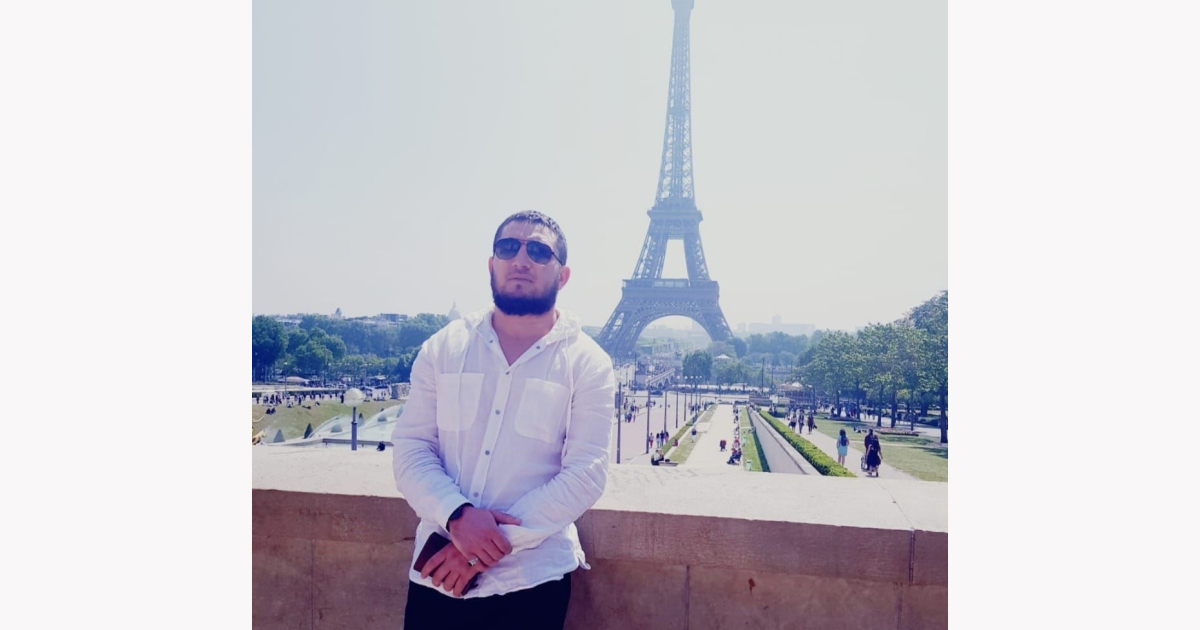
The case of Magomed Gadaev, who was forced on a Russia-bound plane last month, has raised concerns among legal experts and rights groups.
As a key witness in a rare case brought against the Chechen authorities for abduction and torture, Magomed Gadaev fled Russia in 2010.
He had sought safety in France, but on April 9, France deported the 36-year-old Chechen asylum seeker.
A removal order issued by France’s interior ministry on April 9 – the day he was deported – claimed Gadaev was “deeply rooted in the radical Chechen Islamist movement” and “likely to commit a violent action” on French soil.
His expulsion was deemed “a matter of absolute urgency”.
But rights groups, including Amnesty International, decried the move, saying it violated international law and placed Gadaev at “high risk of torture”.
After landing in Moscow, he travelled to the remote Siberian town of Novy Urengoy, where his brother lives.
There, he requested police protection.
But Gadaev was instead handed to the Chechen law enforcement.
Since then, he was reportedly charged by the Chechen authorities with the illegal possession of weapons following a recent search at his father’s house – which he left 11 years ago – and is now in prison in Chechnya awaiting trial.
“The [French] Ministry did all they could to prevent me from appealing the decision,” Gadaev’s solicitor, Arnaud Toulouse, told Al Jazeera, referring to the limited amount of time he was afforded to respond to the deportation order.
Up to that point, three French courts had ruled that Gadaev was not to be deported to Russia.
Gadaev’s wife Maret, speaking from Limoges, where she lives with the couple’s five children, told Al Jazeera: “I can’t believe he’s in their hands. I keep thinking this is some scary dream, that he will walk back into the room.”
She is currently waiting to hear whether she and her children can remain in France.
On April 14, five days after he was deported, a short video of Gadaev was posted by several Instagram accounts which support the current Chechen leadership.
A voice asks Gadaev to say he is alive and has not been beaten up. Gadaev does, and attempts a smile.
‘People who testify usually don’t survive’
Gadaev, who fought against Russian forces during the Second Chechen War, was illegally imprisoned in a basement on the riot police (OMON) compound in Chechnya for four months at the end of 2009 – a common practice, according to Oleg Orlov, a member of the board of Russian NGO Memorial.
“These men were readied for their death,” he told Al Jazeera. “They were detained until their beards grew so that they could be shot in the mountains as insurgents.”
Orlov believes the charges brought in Chechnya against Gadaev were fabricated and that he risks torture and a long sentence, if not death.
“I fear that [the Chechen authorities] will make an example of him for any person who dares to speak up against them,” he said.
Relatives of Islam Umarpashev, who was imprisoned with Gadaev, filed a complaint to the European Court of Human Rights and both men were released in April 2010.
Umarpashev then filed a complaint with Russia’s Investigative Committee.
Like most Chechens who flee to Europe, Gadaev first claimed asylum in Poland, which was granted.
But after receiving threats, he left for France with his family in December 2012. He testified from France remotely against Chechen special forces.
“People who testify about torture and give the names of people involved usually don’t survive,” Adam Dervishev, a Chechen refugee based in France, told Al Jazeera.
As an apparent example of this, in 2006, Umar Israilov, a former bodyguard of Chechnya’s Russia-aligned leader Ramzan Kadyrov, and his father, both filed a complaint to the European Court of Human Rights against the Russian and Chechen governments.
The case was dropped after the Israilovs went into hiding. Umar Israilov was murdered in Vienna in 2009.
Meanwhile, Chechen asylum seekers have faced increased difficulties in seeking asylum in Europe.
Polish border guards routinely deny entry to Chechen asylum seekers at the border with Belarus.
And under the Dublin Regulation, a European Union regulation which determines the states responsible for determining asylum claims, third countries such as Austria or Germany have started refusing asylum to Chechens travelled through Poland.
“The authorities struggle to distinguish between who really has grounds for asylum and who doesn’t,” said Olga Gulina, a Berlin-based migration consultant.
She explained that German officials often inquire about internal asylum in Russia.
“’Why doesn’t internal asylum work in a country that has 11 time zones?’ they ask.”
Crackdown grows after beheading attack
Shortly after his arrival in France in 2012, Gadaev was “fiché S” (“put on the ‘S’ register”) – in other words, flagged by law enforcement as being a serious threat to national security, according to his lawyer, Toulouse.
Toulouse claimed the case against his client relies heavily on “notes blanches”, unsigned and undated reports issued by France’s intelligence agencies, which flagged Gadaev for knowing two men suspected of having been radicalised.
But a crackdown against individuals on the “S” register intensified after the gruesome, daylight beheading attack on school teacher Samuel Paty, by 18-year-old Chechen refugee Abdullakh Anzorov on October 16, 2020.
Two days later, France’s Interior Minister, Gérald Darmanin announced 231 foreign citizens known to the security services for being in the register would be deported.
A French police officer stands next to a portrait of French teacher Samuel Paty on display on the facade of the Opera Comedie in Montpellier on October 21, 2020, during a national homage [Pascal Guyot/AFP] (AFP) Ten days after the murder, Darmanin flew to Russia to meet Russia’s interior minister and discuss deportations.
Since then, Darmanin has been providing regular updates on his Twitter account.
On January 26, he tweeted that 113 of these foreign nationals had left France, 83 placed under house arrest or in a detention centre, and 35 jailed.
At the time of publishing, the French interior ministry had not responded to Al Jazeera’s request for comment.
The interior ministry’s removal order regarding Gadaev, which Al Jazeera has seen, claims Gadaev was involved in various violent incidents, that he was convicted of assaulting his ex-wife in Belgium and punched someone in a detention centre.
“Yes. Gadaev was sentenced in Belgium following a violent argument with his partner, in 2017, four years ago. [The ministry] have put everything they could in the removal order, things that bear no relation with terrorism,” said Toulouse.
The lawyer added that Gadaev was placed in an administrative detention centre last year, like everyone on the “S” register who lost their residence permits following an order by the interior ministry, after Paty was killed.
Toulouse dismissed the charge brought against Gadaev for violence against a fellow detainee, as a means to extend his client’s detention.
By law, administrative detention cannot last for more than three months.
Gadaev went on to serve a three-month prison sentence after this.
“Having punched a guy in a detention centre doesn’t make him a terrorist,” the solicitor said.
Pascale Chaudot, who heads Comité Tchétchénie, said she has seen about five files of Chechens placed on the “S” register, which included notes blanches.
“When I saw the files I was astonished. There’s a description of facts without explanation. Mr so-and-so met a person on whom there’s also a report in such-and-such town at such time. At each description you think, ok, is there anything else?” she said.
Looking ahead, more Chechens who are on the S register are at risk of deportation, according to Chamil Albakov, the spokesperson of the Assembly of Chechens of Europe, which Gadaev co-founded.
“For now, we have around 20 people who were placed on the S register and were either denied asylum or had their asylum status removed,” he told Al Jazeera. “Of the men who have been deported, some are in prison in Chechnya with new charges brought against them, some have disappeared.”
Other European countries are also deporting Chechens, prompting concerns from diaspora communities.
In December 2020, members of Austria’s Chechen minority protested against the mass deportation of 27 Russian nationals.
According to Husein Ishkanov, who heads Austrian organisation Ichkeria, the majority of these deportees were young men of Chechen origin who had been convicted of a minor crime, such as theft or disorderly conduct – and had served a prison sentence – who lost their refugee status as a result.






